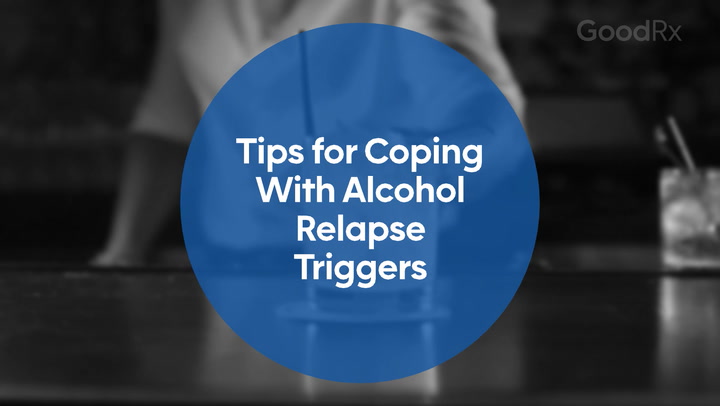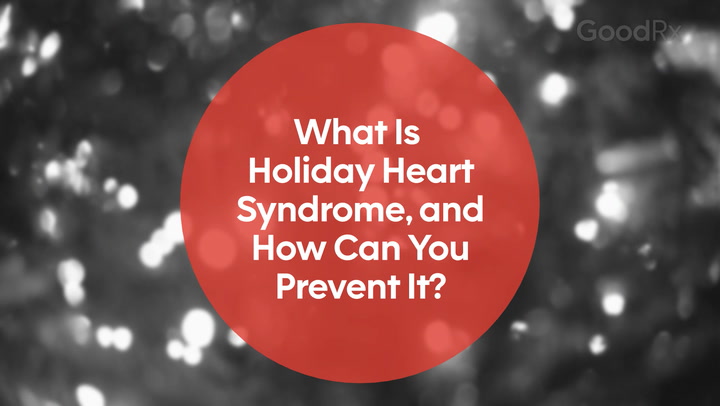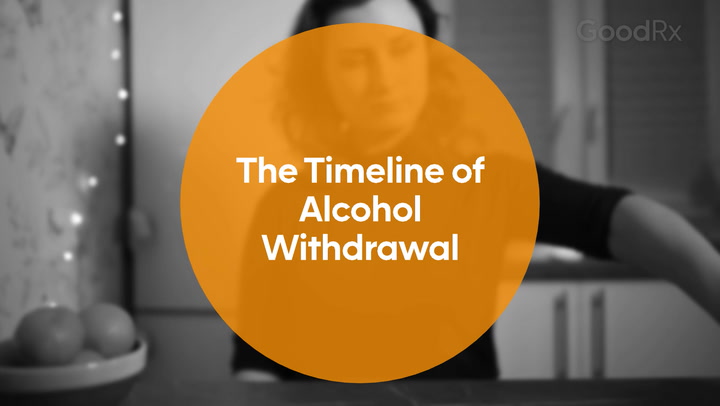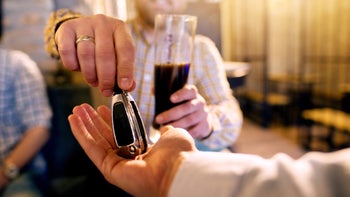
Which Medications Treat Alcohol Withdrawal Syndrome? How Benzos and Others Can Help
Key takeaways:
Medication can help treat alcohol withdrawal symptoms and prevent serious complications like seizures.
Benzodiazepines (“benzos”) are first-choice medications to treat alcohol withdrawal. They’re effective and usually safe when used for short periods of time.
There are other medications for alcohol withdrawal, but they’re usually used in addition to benzos rather than in place of them.
Table of contents

Over 76 million people around the world have alcohol use disorder. If you or someone you know is thinking about quitting alcohol, you may know how a day without a drink can make you feel anxious or shaky. And the truth is: Many people will have serious withdrawal symptoms when they stop drinking — or cut down. In some cases, withdrawal can even be life-threatening.
Fortunately, medications can help make withdrawal safer and more manageable. Benzodiazepines (“benzos”) are one of the best medications for alcohol withdrawal symptoms. But there are other medications that can help too.
Let’s take a closer look at the symptoms of alcohol withdrawal syndrome and the medications that can be used to treat it.
Search and compare options
What are the symptoms of alcohol withdrawal syndrome?
Alcohol withdrawal syndrome is a cluster of symptoms that happen when a person stops drinking alcohol. It’s especially likely after periods of long-term or heavy drinking.
Common symptoms of alcohol withdrawal syndrome include:
Restlessness
Trouble sleeping
Nausea
Vomiting
Sweating
Tremors
Hallucinations
Confusion
In some cases, people can also develop severe or life-threatening symptoms, such as:
Delirium tremens (shaking, sweating, and severe confusion)
Elevated heart rate and blood pressure
Death, in rare cases
It’s not always easy to predict who’ll have more severe withdrawal symptoms. If you regularly drink a heavy amount of alcohol, you may be more at risk. But the good news is there’s treatment to help with alcohol withdrawal syndrome. And these medications can be lifesaving for those who need them.
Is it safe to detox from alcohol at home? Here’s what you need to know about quitting alcohol at home versus in a supervised facility.
How does alcohol affect your health? Learn more about how alcohol affects your body and brain when you drink.
What’s it like to quit alcohol? Journalist Jere Downs shares her experience with quitting alcohol and what she’s learned from over 34 years of sobriety.
Which medications treat alcohol withdrawal syndrome?
Benzos are the mainstay of medical treatment for alcohol withdrawal, so we’ll start there. Then we’ll dive into some other medications that can help.
Benzodiazepines
Benzodiazepines — especially long-acting benzos — are the first-choice medications for alcohol withdrawal syndrome. Benzos treat alcohol withdrawal symptoms by imitating the effects of alcohol in the brain. This allows them to essentially replace the effects of alcohol in the brain and prevent withdrawal symptoms.
Long-acting benzos are preferred because they last longer in the body. They can be helpful for a smooth treatment course. And there’s less of a risk that the medication effect will wear off and that withdrawal symptoms will return. They also don’t need to be taken as often as shorter-acting versions.
Commonly prescribed benzos for treating alcohol withdrawal syndrome are:
Chlordiazepoxide (Librium)
Diazepam (Valium)
Lorazepam (Ativan)
Oxazepam (Serax)
Sometimes, benzos can be prescribed for you to take at home. Other times, they’re given in a supervised treatment facility. It all depends on what setting is right for you.
Your healthcare team will help figure out the right dose and schedule for your care. Each person and treatment regimen is a little different. Typically, people start with a high dose to get their symptoms under control. And then the dose is slowly lowered as the withdrawal symptoms improve. Regardless of the treatment regimen, alcohol withdrawal symptoms usually resolve in about a week, as long as you don’t drink more alcohol.
Benzos are generally safe and effective for treating alcohol withdrawal syndrome. But they can sometimes cause side effects, including:
Fatigue (feeling tired)
Memory problems
Dizziness
Trouble thinking
Depression
Confusion
Benzos also have a strong warning for the risk of misuse or dependence, which can lead to overdose and death. This risk goes up when people take high doses of benzodiazepines or combine them with other medications.
Since benzos can be habit forming, taking them can also lead to serious withdrawal reactions — just like alcohol. This is particularly true for people who take benzos for a long period of time. So you should always talk with your prescriber before completely stopping a benzo.
Barbiturates and propofol
Barbiturates (usually phenobarbital) and propofol are medications typically used for anesthesia. They also can help with seizures. These medications are sometimes used along with benzos when someone has a severe case of alcohol withdrawal syndrome, especially if their symptoms haven’t been fully controlled with benzos alone.
Carbamazepine and gabapentin
Carbamazepine and gabapentin are anti-seizure medications, typically used together with benzos for alcohol withdrawal syndrome. They can also be used on their own for mild cases of alcohol withdrawal, or if benzos aren’t an option. Gabapentin is also sometimes used after the withdrawal period is over, to help with ongoing treatment.
Clonidine and atenolol
Clonidine and atenolol are blood pressure medications. They can be used together with benzos to help control blood pressure, heart rate, and anxiety during withdrawal. They’re not typically used on their own for alcohol withdrawal syndrome, as they don’t prevent or treat more serious symptoms like seizures and delirium.
Supportive treatments
Supportive care is very important in the treatment of alcohol withdrawal syndrome. This refers to other treatments that help keep the body running while it’s recovering from the syndrome. This may include:
IV (intravenous) fluids to help with dehydration
Fluids that contain glucose (sugar) for people who are malnourished
Electrolyte replacements (like potassium and magnesium)
Vitamin supplementation (thiamine and folate)
Can I take medications for alcohol withdrawal syndrome at home?
Possibly. In some cases, alcohol withdrawal syndrome can be treated in an outpatient setting, meaning without the need for a hospital stay. It may depend on your risk for having more severe symptoms, like delirium tremens or seizures.
If you’re interested in quitting or cutting down on alcohol, talk to your primary care provider about your risk for withdrawal. They can help you understand the pros and cons of outpatient care. And they can work with you on a treatment plan for withdrawal — including medications, if appropriate.
Frequently asked questions
Benadryl (diphenhydramine) is an antihistamine medication that can make you feel sleepy. It’s sometimes used as a mild sleep aid, including in people who are quitting alcohol. It’s not used to directly treat alcohol withdrawal symptoms.
Alcohol withdrawal begins within the first 6 hours from your last drink, and alcohol withdrawal symptoms typically last about a week. Some people also experience a “post-acute withdrawal” stage that can last for months to years. Learn more about what to expect in our alcohol withdrawal symptom timeline.
It’s hard to say, as there hasn’t been much research done on THC and alcohol withdrawal yet. But a recent study in mice found that CBD, or a CBD and THC mix, could potentially be helpful for managing anxiety during alcohol withdrawal. More research is needed before we can say for sure whether THC (and other cannabis products) should be part of alcohol withdrawal treatment.
The bottom line
Benzos are first-choice medications to treat alcohol withdrawal symptoms. They’re typically effective and safe treatment for many people with alcohol withdrawal syndrome. Other medications can help, too, and are often used together with benzos.
If you’re interested in cutting down on your alcohol use — or stopping completely — talk to your primary care provider about next steps. They can help you understand how to get through the withdrawal stage. And they can offer guidance about which types of medications might help.
Why trust our experts?



References
American Society of Addiction Medicine. (2020). The ASAM Clinical Practice Guideline on alcohol withdrawal management.
Anton, R. F., et al. (2020). Efficacy of gabapentin for the treatment of alcohol use disorder in patients with alcohol withdrawal symptoms. JAMA Internal Medicine.
Berman, J., et al. (2023). Delirium tremens. MedlinePlus.
Bounds, C. G., et al. (2024). Benzodiazepines. StatPearls.
Centers for Disease Control and Prevention. (2024). Facts about excessive drinking.
Jesse, S., et al. (2016). Alcohol withdrawal syndrome: Mechanisms, manifestations, and management. Acta Neurologica Scandinavica.
Melkumyan, M., et al. (2024). Effects of cannabidiol, with and without ∆9-tetrahydrocannabinol, on anxiety-like behavior following alcohol withdrawal in mice. Frontiers in Neuroscience.
Mo, Y., et al. (2018). Current practice patterns in the management of alcohol withdrawal syndrome. P & T: A Peer-Reviewed Journal for Formulary Management.
Monte, R., et al. (2010). Analysis of the factors determining survival of alcoholic withdrawal syndrome patients in general hospital. Alcohol and Alcoholism.
Sachdeva, A., et al. (2015). Alcohol withdrawal syndrome: Benzodiazepines and beyond. Journal of Clinical and Diagnostic Research.
Saitz, R., et al. (1998). Introduction to alcohol withdrawal. Alcohol Health and Research World.
Schmidt, K. J., et al. (2016). Treatment of severe alcohol withdrawal. Annals of Pharmacotherapy.
U.S. Food and Drug Administration. (2020). FDA requiring boxed warning updated to improve safe use of benzodiazepine drug class.
If you or someone you know struggles with substance use, help is available. Call SAMHSA’s National Helpline at 1-800-662-4357 to learn about resources in your area.

























